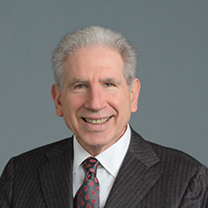Event Details
The Colloquium on Cell-based Therapy for Atherosclerosis will spotlight key scientific advances, translational hurdles, and emerging opportunities in precision cell-based interventions. Featuring international plenary speaker, Professor Edward Fisher, this one-day event will bring together leading researchers and clinicians to discuss the latest advances in cell-based and molecular therapies aimed at resolving vascular inflammation and atherosclerosis. This event is supported by NSW Health.
Thursday 13 November 2025
Venue: HLB Mann Judd Ground Floor Auditorium
10 Shelley Street, Sydney NSW 2000 (HLB Mann Judd map)
Download the program
Keynote Speaker: Professor Edward A Fisher
As a preventive cardiologist at NYU Langone, Professor Edward A Fisher is dedicated to making a positive impact on patients’ lives by focusing on preventing and managing cardiovascular diseases. His philosophy of care revolves around open conversations with patients, fostering trust and rapport to ensure they feel supported and informed throughout their healthcare journey.
He specialises in preventive cardiology, with a particular focus on managing major risk factors such as elevated cholesterol, high blood pressure, prediabetes, and diabetes. With extensive training and years of experience, Professor Fisher is committed to providing accurate diagnoses and comprehensive preventive care, which includes medication management, heart-healthy nutrition, and regular exercise programs.
Throughout his career, Professor Fisher has been part of NYU Langone’s Center for the Prevention of Cardiovascular Disease, a nationally recognised program known for its excellence in patient care and research. His work includes a federally funded program aimed at reversing arterial damage caused by elevated cholesterol levels. This research has provided valuable insights into why certain clinical studies succeed or fail, ultimately enhancing patient care.
Professor Fisher’s journey into medicine was driven by a desire to make a meaningful difference in the field of cardiovascular health. He was inspired by the opportunity to improve diagnoses and treatments for heart disease, and this passion continues to drive his commitment to patient care. He has been honoured with an award from the National Lipid Association for “extraordinary expertise and contributions to the field of clinical lipidology,” reflecting his dedication to quality patient care.

